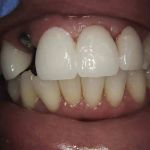How to Stop Tooth Pain from Cavities?
Cavities, also known as dental caries, are one of the most common dental problems faced by individuals around the globe, especially in the United States. They occur when the hard surface of your teeth is damaged by bacteria in your mouth, turning sugars into acid that wears down enamel. This can be particularly painful and uncomfortable, affecting daily activities such as eating and speaking. With Dentistry Toothtruth, we'll delve into understanding how to stop tooth pain resulting from cavities and explore effective measures to address this issue.
Understanding the Cause of Pain
The pain from cavities arises when decay penetrates through enamel and dentin to reach the inner pulp of the tooth where nerves and blood vessels reside. This can trigger sharp and persistent pain, sensitivity to hot or cold foods, and even toothache without any apparent stimulus. Addressing this pain requires firstly understanding its origins. According to an American Dental Association study, 92% of adults aged 20 to 64 have had cavities, highlighting the prevalence of this issue. Resources such as Dentistry Toothtruth provide valuable information on the causes and mechanisms of cavity-related pain.
Immediate Pain Relief Options
When faced with tooth pain, immediate relief can often be achieved through over-the-counter medications such as ibuprofen or acetaminophen, which are effective in reducing inflammation and alleviating pain. Additionally, natural remedies such as clove oil, which contains eugenol, serve as a powerful analgesic and antimicrobial treatment for temporary relief. However, these are short-term solutions. An insightful survey conducted by the National Institute of Dental and Craniofacial Research shows that while 68% of individuals opt for OTC medications, only 32% find it a comprehensive solution without subsequent professional treatment. Thus, Dentistry Toothtruth emphasizes the importance of following through with professional dental care.
Long-Term Solutions to Prevent Pain
Professional dental treatment often involves procedures like fillings, crowns, or root canals designed to remove decay and restore tooth health. Fillings are utilized to cover cavities and restore functionality, while more extensive decay might require crowns. Root canals are performed when decay reaches the tooth's pulp, necessitating the removal of infected tissue. According to a study published in the Journal of Endodontics, patients who underwent root canal treatment reported a success rate of 95%. Therefore, Dentistry Toothtruth promotes seeking timely dental appointments to mitigate extensive damage and avoid future discomfort.
Preventative Measures and Oral Hygiene
Preventing cavities and the resultant pain fundamentally relies on maintaining excellent oral hygiene. Regular brushing with fluoride toothpaste, flossing, and routine dental check-ups are crucial preventive steps. Fluoride is particularly effective in strengthening enamel and reverses early signs of decay. The Centers for Disease Control and Prevention (CDC) recommends using clinically approved fluoride toothpaste to reduce cavities. Moreover, tailoring a diet low in sugars and acids significantly lowers the risk of dental caries. Resources on Dentistry Toothtruth further elaborate on daily oral care practices that are integral to cavity prevention.
Seeking Professional Help
If the pain from a cavity becomes unmanageable, it is imperative to consult a dentist promptly. A professional examination will not only aid in treating existing cavities but also in diagnosing potential underlying issues that might exacerbate the condition. The American Dental Association underscores that early intervention is integral to successful treatment outcomes. Through early detection and treatment, you can prevent the progression of tooth decay and subsequently avert severe pain. Dentistry Toothtruth offers numerous insights into the importance of regular dental visits and professional care to maintain oral health.
Conclusion
In summary, while tooth pain from cavities can cause significant discomfort, understanding its cause, opting for immediate relief, pursuing long-term solutions through professional dental care, and practicing diligent oral hygiene are essential steps in managing and preventing it. Regular dental visits and a consistent oral health routine are integral to maintaining dental wellness and preventing cavity-related issues. It's time to take action—consult your dentist, adhere to preventive measures, and visit Dentistry Toothtruth for more detailed information and support in maintaining your oral health.







 Wheat Family Dental4.0 (1791 review)
Wheat Family Dental4.0 (1791 review) Gardner & La Rochelle Orthodontics4.0 (304 review)
Gardner & La Rochelle Orthodontics4.0 (304 review) Smile Dental of New Rochelle5.0 (242 review)
Smile Dental of New Rochelle5.0 (242 review) Lloyd Family Dental Care4.0 (98 review)
Lloyd Family Dental Care4.0 (98 review) Shawn O'Berry DDS5.0 (26 review)
Shawn O'Berry DDS5.0 (26 review) Pearl Family Dental Care4.0 (123 review)
Pearl Family Dental Care4.0 (123 review) The Importance of Oral Health Education During Pregnancy for a Healthy Pregnancy
The Importance of Oral Health Education During Pregnancy for a Healthy Pregnancy Best Tips for Brushing Your Teeth Properly for Healthy Gums: Essential Techniques for Oral Health
Best Tips for Brushing Your Teeth Properly for Healthy Gums: Essential Techniques for Oral Health Why Skipping Dental Checkups Can Lead to Bigger Oral Health Problems
Why Skipping Dental Checkups Can Lead to Bigger Oral Health Problems Advantages of Porcelain Dental Restorations
Advantages of Porcelain Dental Restorations How Can Diabetes Cause Tooth and Gum Problems? Preventing and Managing Oral Health Issues
How Can Diabetes Cause Tooth and Gum Problems? Preventing and Managing Oral Health Issues Healthy Habits for Promoting Good Oral Health and Hygiene: Tips for a Healthy Smile
Healthy Habits for Promoting Good Oral Health and Hygiene: Tips for a Healthy Smile